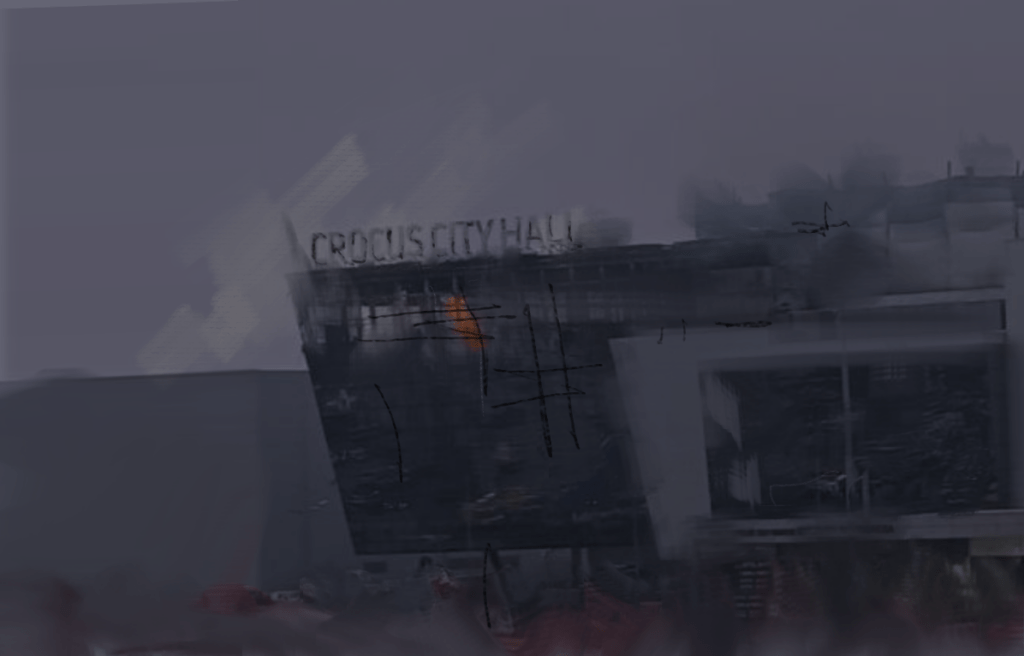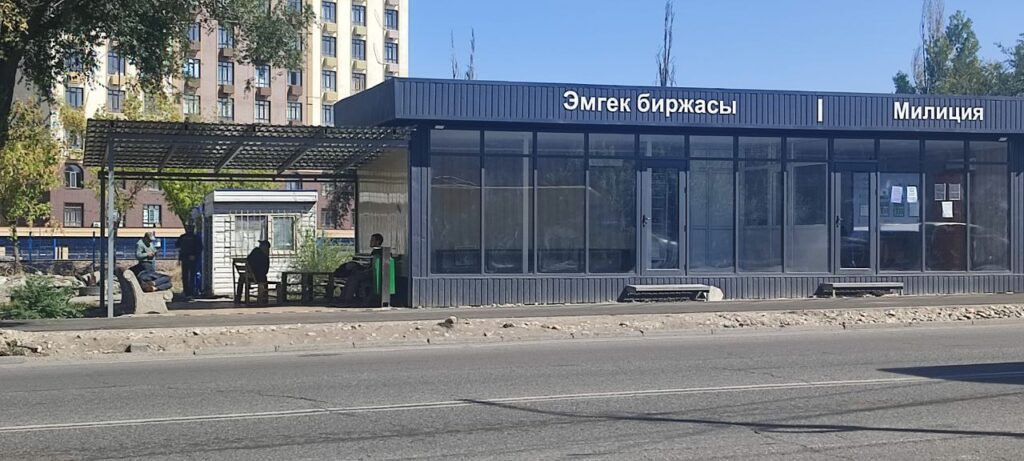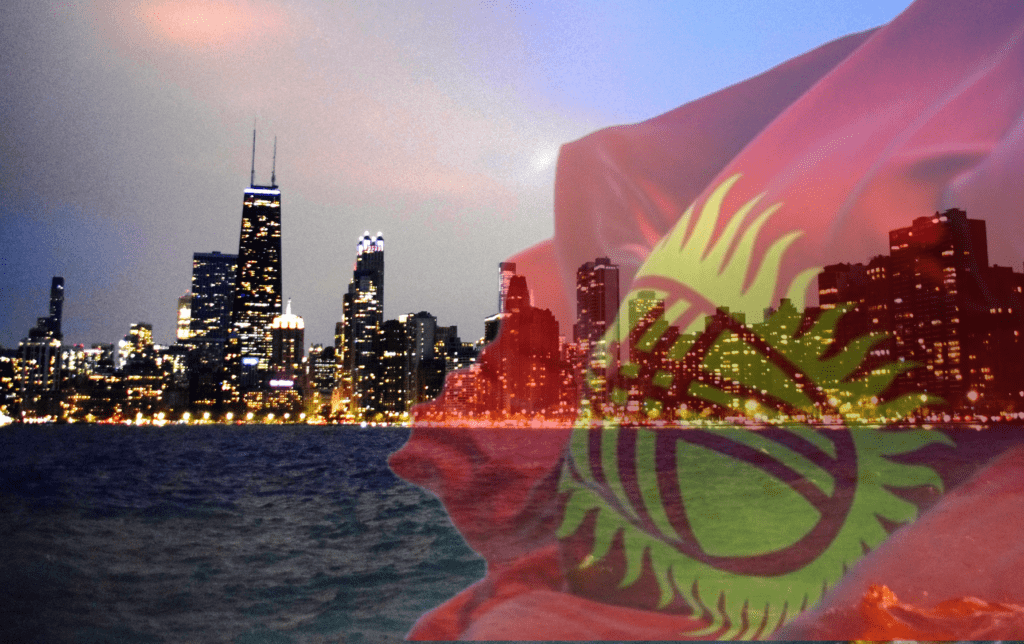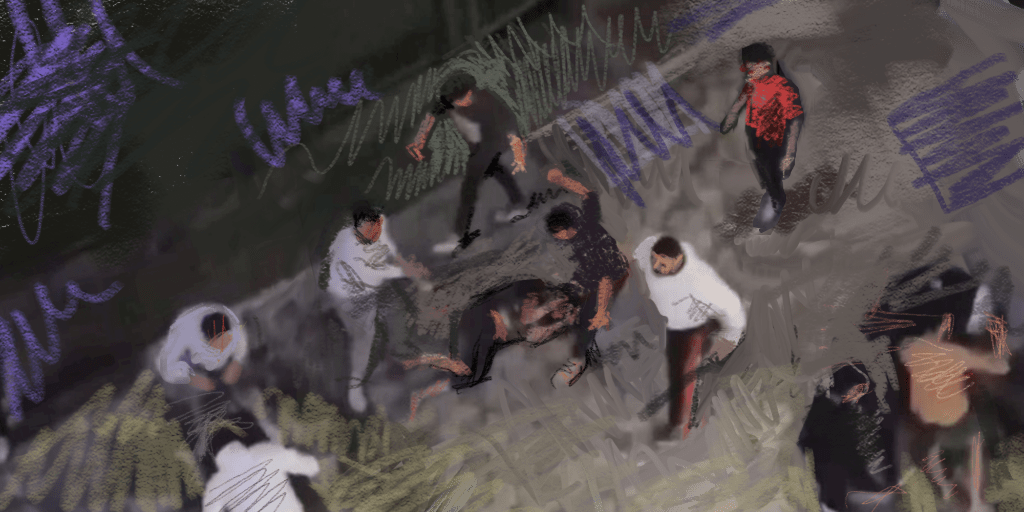On the night of May 18, riots took place in Bishkek. The reason – a fight between foreign medical students and local youth. The trigger was a video of a scuffle, which occurred on May 13, when Egyptian citizens beat several locals. This video was then widely circulated on social networks. Local politicians have stated that they believe the situation was fueled from the outside.
What happened?
On the night of May 18, protesters blocked several streets in the center of Bishkek. According to the Interior Ministry, the number of people continued to grow, and there was a threat of mass disorder, so all personnel from the capital’s police were placed on alert. All hostels and dormitories in the city where foreign citizens live were put under guard. The protesters expressed dissatisfaction with the large number of migrants coming into the country from Egypt, Pakistan, India, and Bangladesh. The head of Kyrgyzstan’s National Security Committee said law enforcement agencies detained several provocateurs who were calling for the overthrow of the government. By morning, the participants in the unauthorized rally had been dispersed. In total, about 1,000 people took part in the unrest, according to the capital’s police. Law enforcement urged citizens not to give in to provocations and show a high-level of civil responsibility. The Ministry of Health of the Kyrgyz Republic reported that following the incident, 41 people sought medical assistance in Bishkek.
Four Egyptians were detained – local media claim they were participants in the conflict that took place on May 13. Later, it became known that some Kyrgyz citizens had also been detained. The confrontation between local residents and foreigners has acquired an international dimension, with a number of government agencies in neighboring countries expressing their concern. For example, Kazakhstan introduced a special regime on the border with Kyrgyzstan. The authorities in Pakistan, meanwhile, have organized emergency flights, and a number of their students and workers are leaving Kyrgyzstan.
Several thousand students from India, Pakistan, Egypt, Bangladesh and Nepal study at Bishkek’s medical institutes. There are also migrant workers from these countries living in the country, who are mainly employed in the production of garments.
Who benefits from the unrest?
According to deputy Dastan Bekeshev of the Jokorku Kenesh, the unrest is an attempt to find the authorities’ vulnerabilities.
“One of the indicators of economic growth is when citizens of the country hire foreign citizens as workers. And there is no way for us to avoid conflicts with foreign citizens. Conflicts are also arranged by our own citizens abroad. Of course, guests should not forget that they are guests and must coexist peacefully with the citizens of the country they are in. But we should also learn tolerance and wisdom when various conflicts occur. There are law enforcement agencies and they have every opportunity to punish a foreigner and expel him from Kyrgyzstan for a long time. Our laws on external migration are very strict,” the parliamentarian wrote on his Telegram channel.
The MP said the authorities need to uncover the ultimate beneficiary behind the unrest.
“It reminds me of the situation when a number of citizens formed the Kyrk Choro movement, which spoke not against the authorities, but against the Chinese. Later, it turned into a political movement… We must remember that it’s not the one who criticizes publicly that’s dangerous, but the one who can quietly organize a mass mindless protest,” Bekeshev said.
Asylbek Aidaraliyev, an academician and teacher at a university in the capital, stated at a press conference in Bishkek that he is convinced the situation around the fight is being heated on purpose. For example, Pakistani media are spreading fake news about murders and severed hands. A lot of negative information is appearing, which can reduce the number of tourists.
“When they break into your house and beat you up, it’s certainly scary. Honestly, this is the first time I’ve seen such a reaction. It needs to be dealt with very seriously, here. Of course, this is a massive blow to us. I’m not sure whether there will be a new intake of foreign students in our educational institutions, now. I hope the situation will normalize,” Aidaraliyev said.
After the incident, many foreign students were transferred to distance learning, with 130 going home and 540 preparing to go to Pakistan, university officials said. There are a few weeks left until the end of the academic year, so many have been allowed to take their exams remotely.
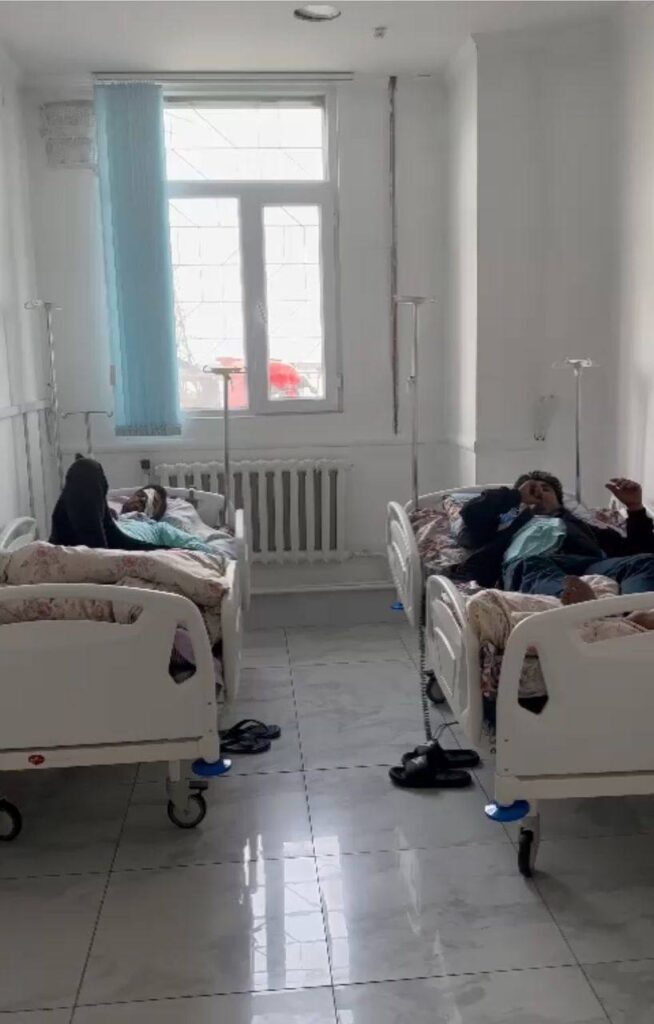
Injured parties in a Bishkek hospital; image: TCA, A.Chipegin
At the same time, the Pakistani authorities noted the promptness with which the Kyrgyz authorities engaged in resolving the conflict.
“The situation is now normal: Kyrgyz students are visiting the wounded as a gesture of goodwill. Security measures have been strengthened in Kyrgyzstan as a precautionary measure,” Ishaq Dar noted.
The day after the incident, Edil Baisalov, deputy chairman of the Kyrgyz Cabinet of Ministers, arrived at the hostel where the pogroms took place, where he apologized for the harm caused by the hooligans.
“The criminal actions of individuals have nothing to do with our culture and traditions of hospitality. Our nation respects guests and cares for them. Foreign students are treated with great sympathy in our country. Nothing threatens you in Kyrgyzstan, the authorities are fully responsible for your wellbeing. The events of one night do not reflect the attitude of our people towards you,” Baisalov said, emphasizing that those responsible will be punished.
Local volunteers have become active since the incident, bringing food to foreign students, helping them financially and lending moral support. Many foreigners remain afraid to go outside.
The Kyrgyz Interior Ministry said police are patrolling all areas around the dormitories. The situation in Bishkek is stable, and people’s groups have been formed to help keep order.



